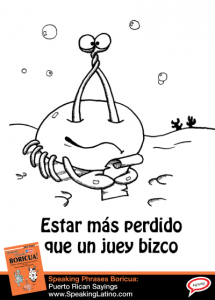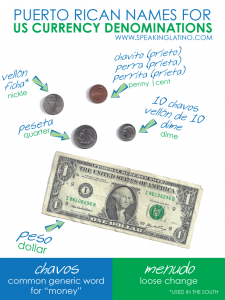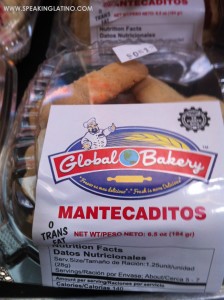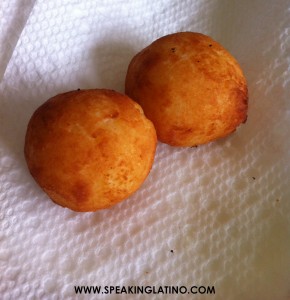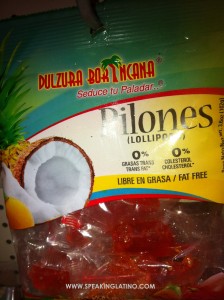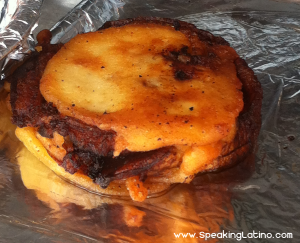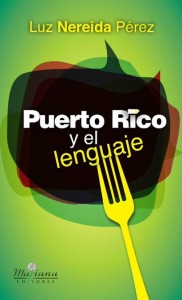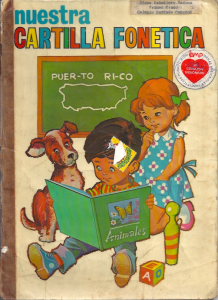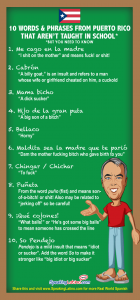This is a popular saying in Spanish which means that big problems require big solutions. It is often used to justify drastic measures to solve serious problems. Examples Spanish: El país está en crisis económica. Como dice el dicho, 'A grandes males, grandes remedios'. Es hora de tomar medidas drásticas. English: The country is in […]
A falta de pan, galleta
This phrase is used to express the idea of settling for an alternative when the first option is not available. It literally translates to 'In the absence of bread, a biscuit'. Examples Spanish: Quería ir al cine, pero a falta de pan, galleta, así que vi una película en casa. English: I wanted to go […]
A ése no lo salvan ni las once mil vírgenes
This colorful expression is used to refer to someone who is in a very difficult situation, implying that even an extreme or miraculous solution couldn't help them. It's a somewhat humorous way of saying someone is beyond help. Examples Spanish: 'A ése no lo salvan ni las once mil vírgenes', dijo Juan, refiriéndose a su […]
A Dios rogando y con el mazo dando
This phrase is used to describe someone who prays to God but also works hard to achieve his or her goals. It emphasizes the importance of coupling prayer with actions. Examples Spanish: Mi padre siempre ha sido un gran trabajador, creyente en 'A Dios rogando y con el mazo dando'. English: My father has always […]
A cualquiera se le muere un tío
This phrase is used to express that anyone can have a stroke of good luck or receive an unexpected benefit. It's often used in situations where someone unexpectedly comes into a fortune or good situation, implying that they didn't necessarily earn it. Examples Spanish: Juan nunca trabajó un día en su vida y de repente […]
A cada santo le llega su día / hora
This phrase is used to express that everyone will get their moment or opportunity at some point. It can also be used to imply that everyone will face the consequences of their actions eventually. Examples Spanish: No te preocupes, a cada santo le llega su día. Tu oportunidad llegará. English: Don't worry, every saint has […]
A cada puerco le llega su sábado
This phrase literally translates to 'Every pig gets its Saturday,' but it's used to mean that everyone will get what they deserve in the end, particularly those who do wrong. Examples Spanish: No te preocupes por él, a cada puerco le llega su sábado. English: Don't worry about him, everyone gets what they deserve in […]
A cada lechón le llega su San Martín
This is a Spanish idiom that translates to 'Every pig has its St. Martin.' It's used to convey that everyone must face the consequences of their actions sooner or later, as St. Martin's Day was traditionally the day to slaughter pigs for winter. Examples Spanish: Sigue comportándote mal, recuerda que a cada lechón le llega […]
A cada guaraguao le llega su pitirre
This phrase literally means 'Every guaraguao (a type of bird of prey) has its pitirre (another bird that bravely attacks the guaraguao)'. It is used to express that everyone will meet their match or that everyone will face their own challenges. Examples Spanish: Juan siempre se aprovecha de los demás, pero no te preocupes, a […]
A caballo regalado no se le mira el colmillo
This phrase literally translates to 'Don't check the teeth of a gift horse.' It is used to express that one should not criticize or be ungrateful for a gift or opportunity they have received, even if it's not perfect. Examples Spanish: 'El coche que me regaló mi tío es viejo, pero ya sabes, a caballo […]
MÁS PERDIDO QUE UN JUEY BIZCO: Puerto Rican Spanish Slang Expression
Translate the Puerto Rican Spanish slang expression: MÁS PERDIDO QUE UN JUEY BIZCO The Puerto Rican saying estar más perdido que un juey bizco is one of my favorites. This particular phrase is one of the most commonly used by locals on the island. It also uses the Puerto Rican Spanish word juey for crab. […]
Puerto Rican Words in Spanish for US Currency: Infographic
“Más de un siglo después de uso de la moneda estadounidense, seguimos buscando el peso, tramitando la peseta, pidiendo el medio peso, luchando el vellón, sudando los chavos…” -Luz Nereida Pérez from the book Puerto Rico y el lenguaje Puerto Ricans say chavos instead of dinero Puerto Rico is a United States territory since […]
MANTECADITOS: Puerto Rican Spanish Slang Word for Butter Cookie
Here’s a photo of a pack of mantecaditos taken in a store in San Juan, Puerto Rico. Mantecaditos is the local Puerto Rican Spanish Slang Word for a type of butter or shortbread cookie. Mantecaditos and polvorones are similar and many people use both names interchangeably. Know of any other words for cookies used throughout […]
ALMOJÁBANAS: Puerto Rican Spanish Slang Word for a Rice Flour Fritters
Photo: Puerto Rican Spanish Slang Word for a Rice Flour Fritter Almojábanas are fritters made of rice flour, cheese, Parmesan cheese, milk and egg. This mixture is used to make a dough that is fried in a ball. Other Latin American countries make their own versions of almojábanas with different ingredients, sizes and cooking methods. […]
PILÓN: Puerto Rican Slang Word for a type of lollipop
Photo: Puerto Rican Slang Word for LOLLIPOP Above is a photo I took one day at the grocery store in Puerto Rico. The word Pilón or Pilones in plural is the Puerto Rican Spanish word for a type of “lollipop”. Here are two more pictures of how a pilón looks: Do you know any other […]
FRITURAS: The Illustrated Puerto Rican Spanish Guide to Fried Food
If you are talking about frituras (fried treats) you are talking about Puerto Rico. And if you are talking about the frituras de Puerto Rico, you are taking about Los Kioskos de Luquillo. The other day I spent some time at this iconic place on the northeast coast of Puerto Rico. The legendary Luquillo’s Kiosks […]
Navidad en Puerto Rico: Plano Arquitectónico del Lechón a la Varita
Preparar un lechón a la varita es una de las tradiciones de Navidad en Puerto Rico. El lechón a la vara no es solamente una costumbre culinaria puertorriqueña, sino una de las representaciones más comunes de la Navidad boricua ya que se disfruta en una gran fiesta de familia y amigos. A los puertorriqueños nos […]
9 Musical Instruments Used in Puerto Rican Parrandas [PHOTOS]
Parranda, trulla, asalto… all these Spanish words are synonyms for the same thing in Puerto Rico: a group of people that show up at a house the night singing traditional Christmas songs and having a party. While in other countries parranda is a word meaning to go out to party, in Puerto Rico it is […]
Puerto Rican Spanish: An Interview With Luz Nereida Pérez
Today Puerto Rico commemorates the date when Christopher Columbus arrived to the Island in 1493. Referring to this historical event as a “discovery” has become controversial recently. A “discovery” or not, we can say without any doubt that this was the date that Borikén –native name of the island of Puerto Rico- met the Spanish […]
4 Confusing Puerto Rican Spanish Slang Words: BICHO, BICHA, BICHERÍA and BICHOTE
Although the Spanish slang words from Puerto Rico bicho, bicha, bichería, and bichote seem to have the same “root” they don’t mean the same. For foreigners this will be confusing to the point that I consider them “false friends”. The two similarities these four words have are the root bich- and that they all have […]
Which Are the First 3 Puerto Rican Spanish Words Kids Learn to Read?
When I started learning to read at 5 or 6 years old we used the traditional Cartilla Fonética or a phonetics booklet. The Cartilla Fonética is a tool used at school to teach the name and particular sound of each letter, how to make the consonant and vowels liaison to form syllables and how to […]
The Boricua Bar: 10 Alcoholic Drinks From Puerto Rico
This article about alcoholic drinks from Puerto Rico by Jared Romey was originally published in English on Matador Nights. An updated and translated version was also published in the Puerto Rico newspaper El Vocero de Puerto Rico. 10 Alcoholic Drinks From Puerto Rico Probably best known for giving the world the piña colada, Puerto Rico […]
10 Vulgar Spanish Slang Words and Phrases from Puerto Rico: Infographic
If you are in the process of learning Spanish and plan to travel to Puerto Rico, keep in mind the following list of words and phrases. These 10 sayings are common in Puerto Rican Spanish but are too strong to be taught in school. You need to know them. If you find them useful, download […]
batutera
A slang term primarily used in Argentina to refer to a girl or woman who likes to party a lot and is often at nightclubs. Examples Spanish: Ella es una batutera, siempre la veo en los bares cada fin de semana. English: She is a party girl, I always see her in bars every weekend.
candungo
It's a term used in Spain that generally refers to a person who is considered difficult, bothersome, or annoying. Examples Spanish: No soporto a ese candungo, siempre está molestando a los demás. English: I can't stand that annoying person, he's always bothering others.
cachimiro
In some Latin American countries, 'cachimiro' is a slang term used to refer to a homemade smoking pipe, often for marijuana. It can also refer to the marijuana itself in a more general sense. Examples Spanish: Mi amigo hizo un cachimiro con una manzana. English: My friend made a homemade pipe with an apple.
sínsora, sínsoras
A term used to refer to a person who acts like they are a know-it-all, or who thinks they are superior to others. Also used to describe someone who is bossy or controlling. Examples Spanish: No soporto a Luis, siempre se comporta como un sínsora en las reuniones. English: I can't stand Luis, he always […]
égida
In Spanish slang, 'égida' is used to refer to protection or support, often provided by a powerful person or entity. It originates from the Greek mythological term 'Aegis', the shield of Zeus or Athena. Examples Spanish: La organización benéfica opera bajo la égida de las Naciones Unidas. English: The charity organization operates under the aegis […]
pichear, pichar
A slang term used primarily in Puerto Rico and Cuba, which means to ignore, avoid or reject something or someone. Examples Spanish: No te ofendas, pero voy a tener que pichar tu oferta. English: Don't be offended, but I'm going to have to ignore your offer.
cochofle
Cochofle is a slang term used in Chile and it refers to a mess or a situation that is complicated or confusing. Examples Spanish: Este proyecto está hecho un cochofle, necesitamos organizarlo mejor. English: This project is a real mess, we need to organize it better.
